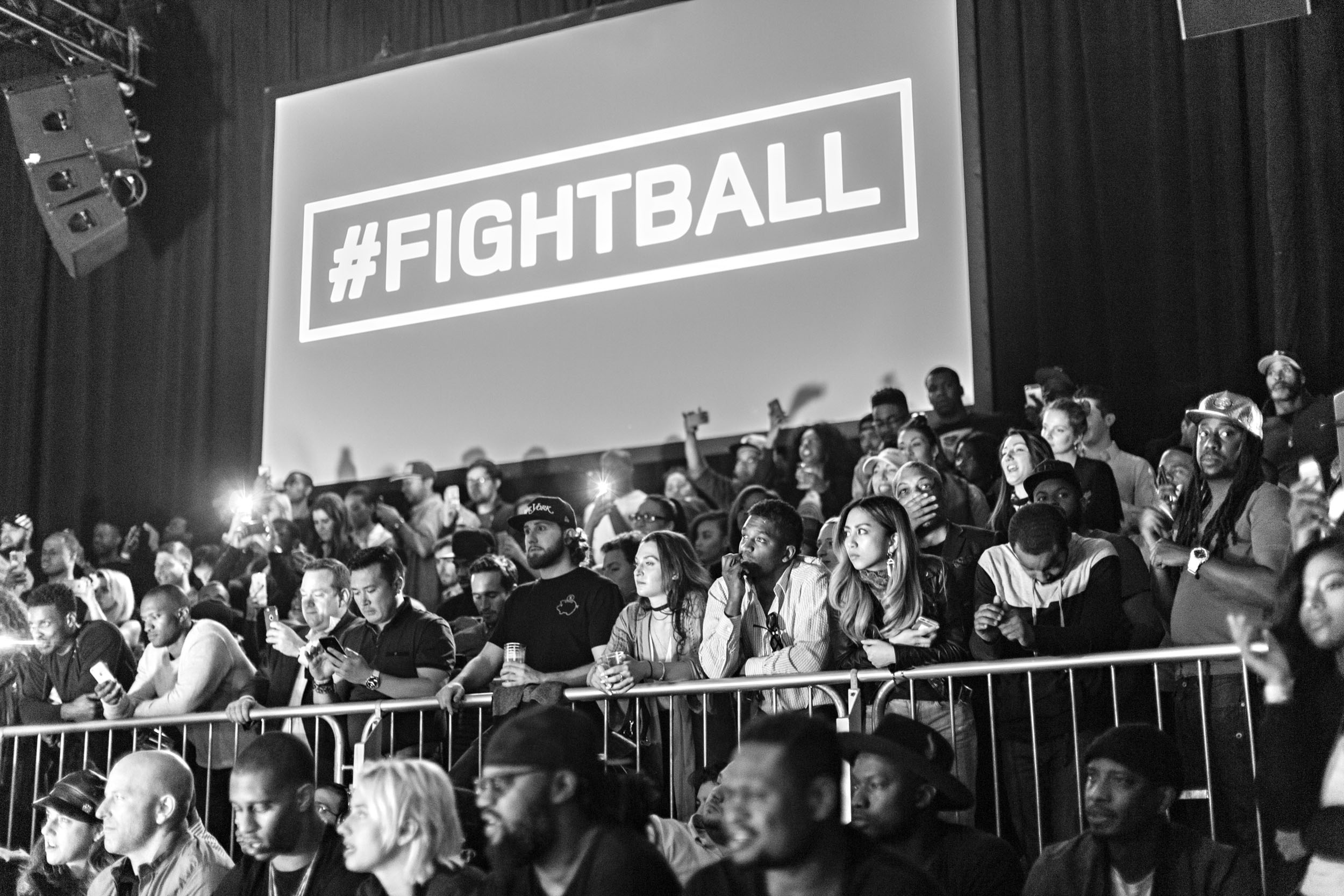Inside a nondescript warehouse just minutes from Madison Square Garden and the Hudson River, a company called Fightball— determined to fuse basketball and hip-hop club culture— recently completed its first large scale one-on-one hoops tournament.
Over 500 people packed into SIR Stage37 in New York City on three recent weeknights to watch 16 players of varying and contrasting basketball skills compete in a one-of-a-kind, physically-demanding, action-packed event that the Fightball founders hope can become the next UFC— with basketball as the centerpiece instead of choke-holds and submissions.
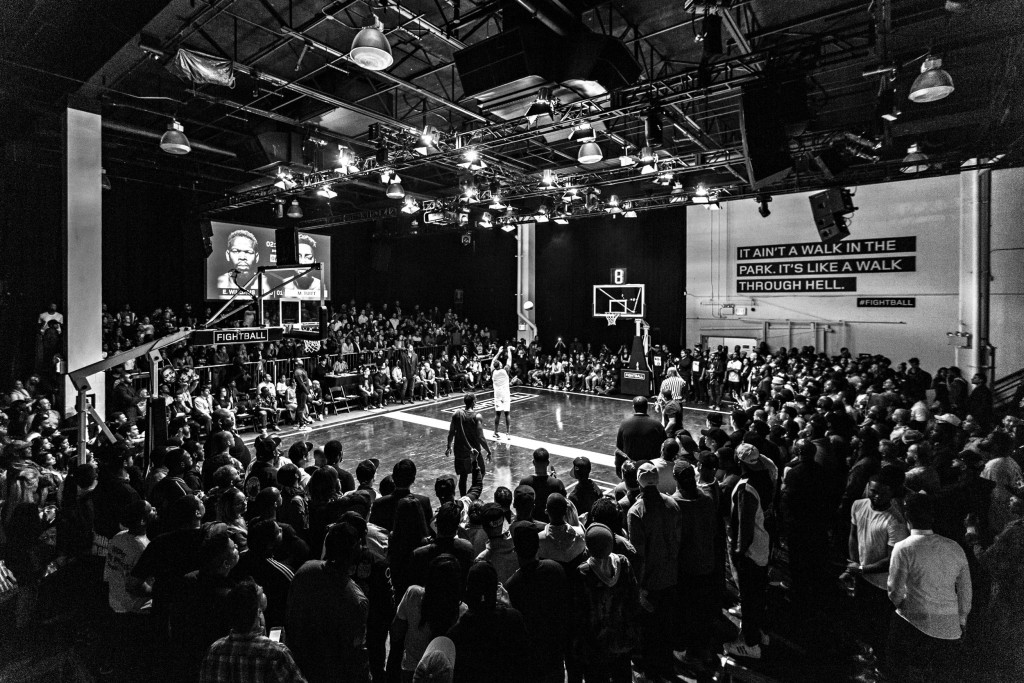
On the outside, it looked like any regular New York City nightspot on a Thursday night, with overcrowded lines, large bouncers wearing all black and an excited buzz among the congregated masses. Inside, the lights are dim and DJ Clark Kent is mixing live with the latest rap and trap hits as fans sip on plastic cups full of Heineken, awaiting the action.
After about an hour, lights illuminate a black court with a large white stripe in the center. Emcee Joe Pope grabs the microphone and in a loud baritone growl, welcomes you to Fightball, “the world’s most intense basketball competition.”
Somewhere in the building, Liron Reznik and Jonas Hallberg witness their dreams and aspirations play out on this intimate stage that was publicized only by social media and word of mouth. Reznik and Hallberg, an Israeli and a Swede, are the founders and owners of Fightball, which they created, tweaked and built over a two-year period.
The duo has a background in all types of marketing and promotion, most notably in grassroots marketing and working with various companies to create organic experiences. The two entrepreneurs share a love for basketball, but had a desire to do more than just casually observe the game.
“We also saw something that we felt could be really cool if we modified and changed things to develop for the future,” Reznik told The Comeback from the second floor VIP lounge at the club, his voice competing with the thumping music from behind the closed door. “It’s taking one on one and isolating it out into a new type of format.”
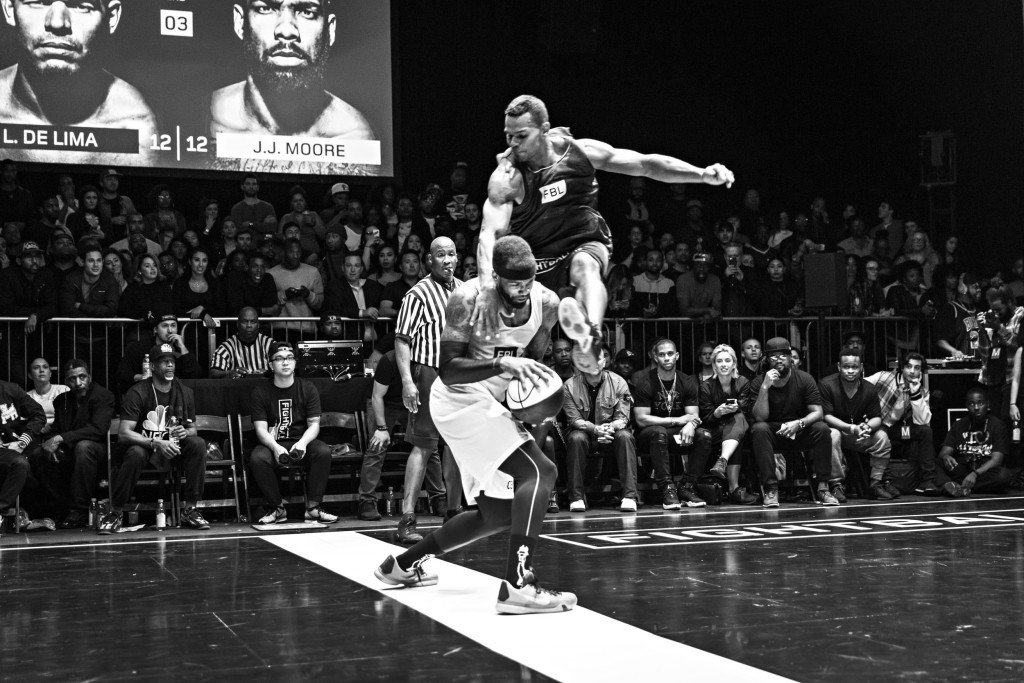
The format, which does not feature actual fighting, features a full court game with two baskets about 40-50 feet apart, where players compete in two four-minute halves. The eight-second shot clock ensures constant action. Layups and shots inside the midcourt stripe are worth one point, shots at midcourt and beyond are worth two points and dunking on your opponent is worth three.
“The rules makes it super grueling to play,” Hallberg said. “At some point you need more than the physical skills; you need the mental ones.”
And that’s where the founders came up with Fightball, the psychological poise and mental stamina needed to prevail on their unforgiving courts.
“This environment is not for everybody,” Fightball player personnel director Bernard Bowen told The Comeback. “The lights come on and it’s a different story.”
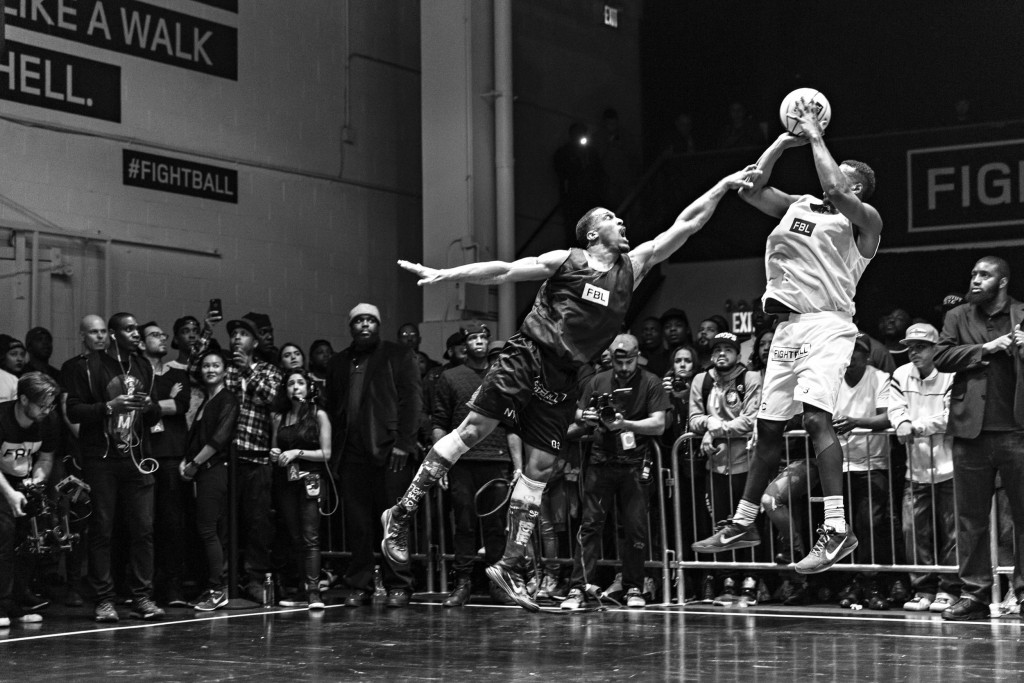
Next, Pope directs the crowd to a large video board behind the club’s temporary metal bleachers. Fightball flew to the home cities of each of the tournament’s 16 contenders and shot a video about their backgrounds and how they worked their way to this point.
“Amazing stories, amazing dreams,” Reznik said, straight out of a marketing playbook.
The game begins, emcee Pope begins calling the action and a custom-made soundtrack from legendary producer Just Blaze starts to play. The founders wanted a different sound and a different type of vibe depending on the situation during that game, Hallberg said.
There’s a whole basketball culture out there, Reznik said, that “takes music and makes it an integral part of the experience for a fan.”
Reznik and Hallberg want people on their feet, leaning forward, turnt up. They want to impart the importance and gravity of the game to their fans, and the soundtrack helps deliver that as well as the kind of vibe and atmosphere the founders are looking for with Fightball.
“We want the energy of a club or a great show,” Reznik said. “I think that’s more akin to the energy here today.”
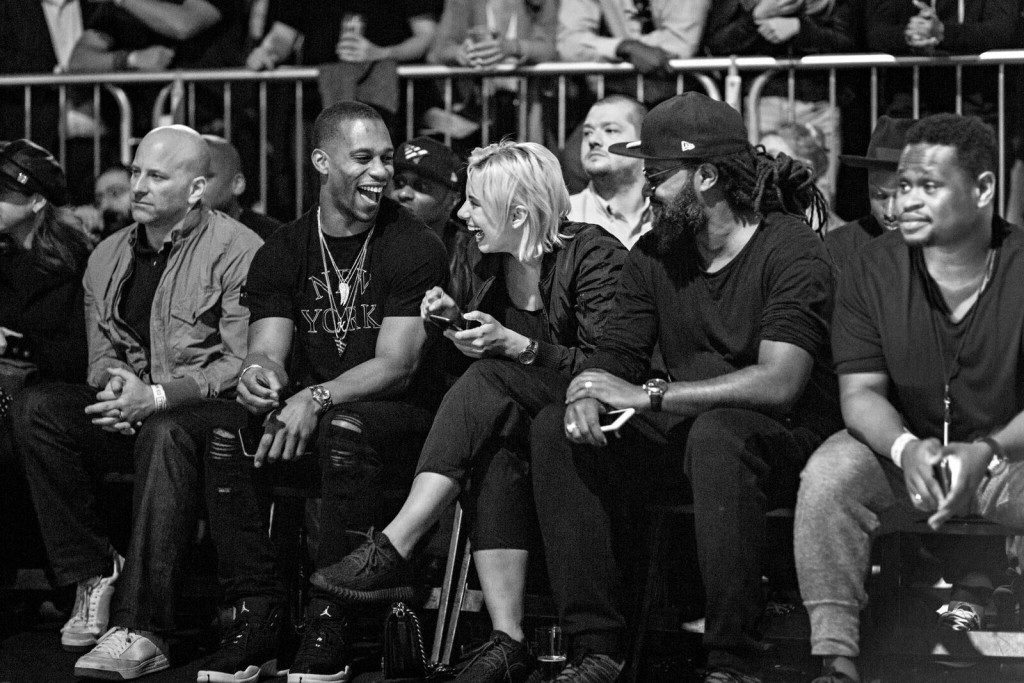
Over the course of the two $10,000 qualifiers and the $100,000 final event, Fightball brought in three rappers to perform between the evening’s semifinals and final games. A$AP Ferg, Cam’ron and Pusha T entertained the club crowd while celebrities including Victor Cruz and Tyreke Evans looked on, as fans shot videos on their phones and sent Snapchat messages to their friends. That interaction and “we’re here, you’re not” vibe is as vital to the growth and success of Fightball as the contests themselves.
Marvin Roberts, who played for head coach Isiah Thomas at Florida International University, won the first qualifier, and former University of Delaware guard Andrew Washington won the second qualifier over top Brazilian three-on-three player Leandro De Lima. Competitors who failed to win prize money included J.R. Smith’s brother Chris and Malik Boothe, who started at point guard at St. John’s.
Washington, who wears Spongebob socks and carries that nickname, spent time in federal prison for reasons neither he nor Fightball would comment on. He was homeless for three months in Washington, D.C. and has a six-year-old daughter to care for and a 19-year-old sister who’s disabled. The fact that he won a rematch with De Lima to claim the $100,000 prize and take home $110,000 in total winnings appears to be straight out of central casting.
Washington received one of those novelty giant checks after the grand finale and was overcome with emotion as he was mobbed by friends and well wishers with tears streaming down his cheeks.
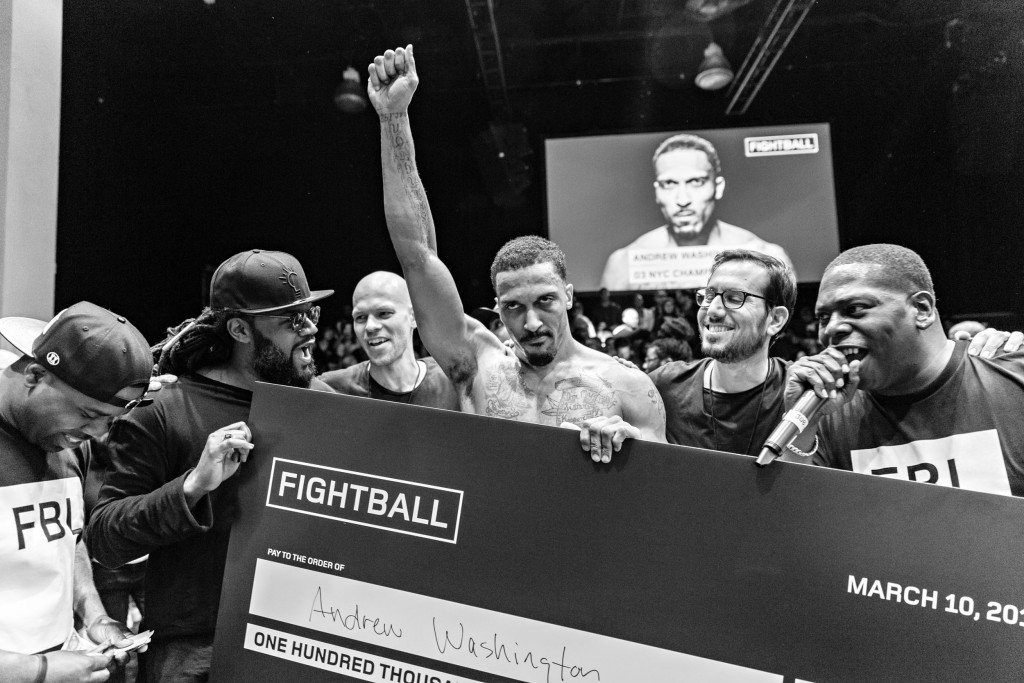
“I’ve been through so much over these last two, three years,” Washington told The Comeback. “When I was going through those rough times I had, I never understood why. To see me get evicted and not be able to take care of bills. Now that I got this money, I’m going to be smart with it and appreciate this blessing.”
With the spring session in the books, next up for Fightball is a full season tournament at a yet-to-be determined location in Los Angeles. Like UFC has Las Vegas, New York will always be Fightball’s home base, but Hallberg said that they plan to hold contests in cities around the world including Shanghai, Paris, Rio, Istanbul, Chicago and Miami.
Fightball will be able to put on these events with the help of a sports-oriented firm named Apex Entertainment, which bankrolled sports movies such as “Miracle,” “McFarland, USA,” “Secretariat” and “Invincible.”
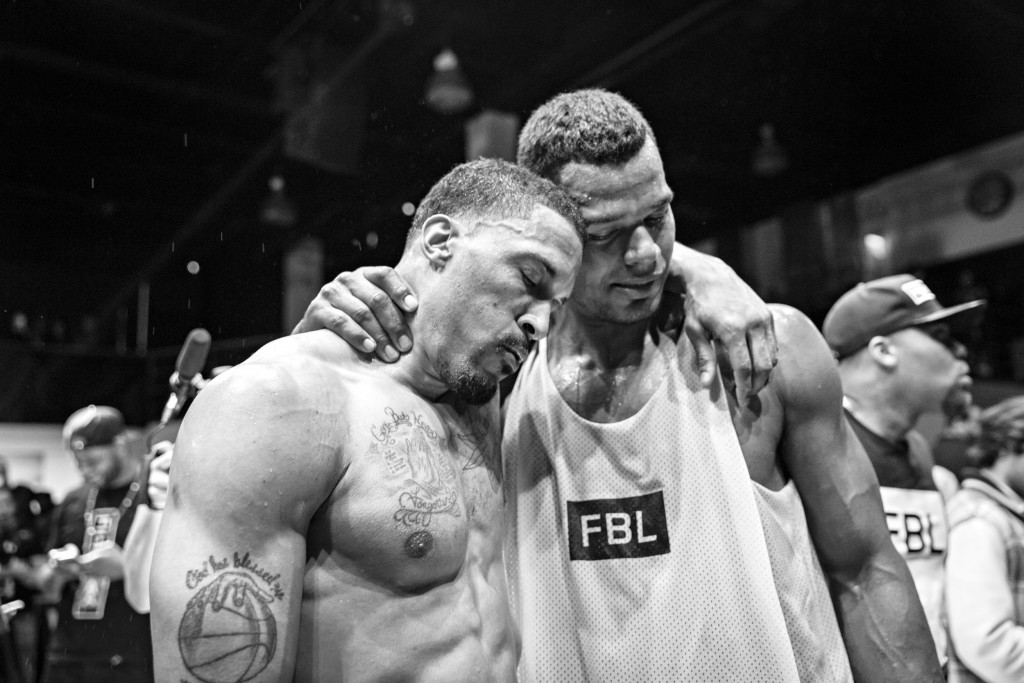
“We were attracted to Fightball because of its unique format, visually compelling content and excellent storytelling that we felt would strongly resonate with the millennial demographic audience worldwide,” Apex Entertainment co-founder Ash Vasudevan said in a statement to The Comeback. “Fightball has a tremendous potential to truly revolutionize sports media storytelling and we are excited to be part of this journey.”
With D-League salaries remaining extremely low, Hallberg and Reznik believe that there’s room for Fightball in the global basketball landscape.
“There are so many great, talented players around the world that deserve a stage where they can shine and make money,” Hallberg said.
As the lights turned down at SIR Stage 37 in Manhattan and the music stopped playing, there were smiles all around the club, knowing that the participants—and those in that VIP lounge—may have created the next big thing.

